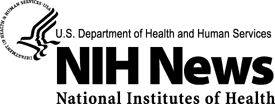 |
|
|
FOR IMMEDIATE RELEASE:
June 28, 2000 #00-09 28 Jun 2000: In Test, Detroit Families with Asthmatic Children Get New Vacuum Cleaners, Mattress and Pillow CoversAs part of an effort to reduce their asthma symptoms, new, filter-style vacuum cleaners are being delivered to 150 Detroit (Mich.) families in the first wave of Community Action Against Asthma (http://www.sph.umich.edu/mcech/research/caaa.html) The state-of-the-art, filtering vacuum cleaners and other household items such as plastic mattress covers are being provided to see if these will reduce allergens -- the triggers for allergic attacks -- significantly. The project, on the east side and southwest areas of Detroit, is part of a program to reduce the levels of household allergens that trigger asthma that will eventually involve more than 300 Detroit families with asthmatic children between the ages of 7 and 11. The second wave of families will receive their new vacuum cleaners and other household materials next spring. "Vacuuming--with the right kind of filters--can help rid the house of things that can 'trigger' asthma symptoms, such as dust mites, or cat dander," says Randy Brown, M.D., a pediatric pulmonologist working with the group. Dr. Brown is also a board member of the Detroit Asthma Coalition and the American Lung Association (http://www.lungusa.org/) The study protocol calls for regular home visits by community environmental specialists, or outreach workers, over a two-year period, as well as other interventions that are designed to reduce some of the household allergens that make asthma worse for children. The group is also studying exposure to air pollutants to determine the effects pollutants may have on asthma symptoms. The families were located through a screening questionnaire, which was distributed through the mail and the schools. Community environmental specialist Jean Patton reports, "The families are eager to work with us, both to help their children and to help their community." The families are part of a five-year project called Community Action Against Asthma, or CAAA, an effort of the newly-established Michigan Center for the Environment and Children's Health (http://www.cehn.org/cehn/resourceguide/mcfteah.html) Rose Smith, the mother of one of the children in the project, says, "I like the project very much. It has helped me to learn more about asthma and how to control it." |
|


